Opinion
An unnatural disaster
Those of us who escaped unscathed are complicit in the suffering of others, one way or the other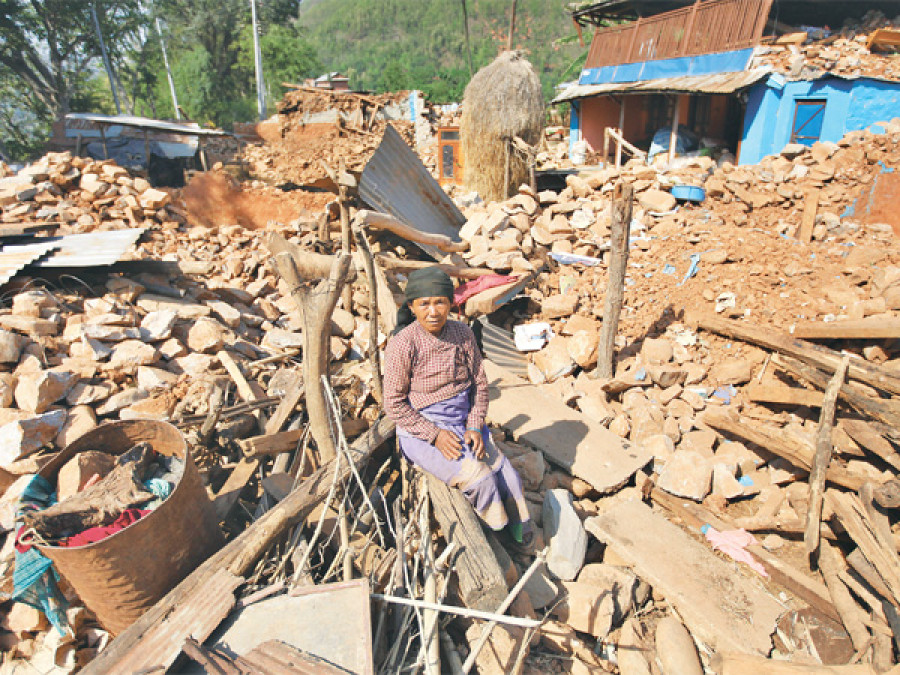
Shradha Ghale
The massive earthquake that struck Nepal on April 25 shook all of us in Kathmandu. Together, we experienced the horror of seeing our homes tremble and the roads crack under our wheels. We unanimously mourned for our fallen temples and monuments and for those who could not escape in time. The relentless aftershocks, the sleepless nights, the familiar woes of power cuts, water shortage, poor telephone and internet connection, and the less familiar trials of living under tents on open grounds. Even those of us who have known natural disasters—the yearly floods and landslides, for instance—as things that only happen to other people, even the most sheltered among us, are reeling from the shock. In some ways, we are living through a collective, all-encompassing tragedy.
In other ways, we are not. I, for instance, am among those who did not suffer even a fraction of the damage others did in and outside Kathmandu. None of my friends lost their loved ones or got seriously injured. The quake knocked down the boundary walls that guarded our homes and gardens. Some of our walls have cracks and our water tanks broke. But our houses did not collapse and bury us. The disaster did not strip us of our livelihoods or make us homeless. We will resume our normal lives once we repair the damages or move house. Some of us already have. Hearteningly, many of us have taken on the necessary but not unprivileged role of fundraisers, volunteers, relief providers, and interpreters of other people’s suffering.
The poor and disadvantaged
Even within Kathmandu, some have not been half as fortunate. Hira Maharjan, who drives my friend’s family car, fled from his crumbling house with nothing but the clothes on his back; his belongings remain buried in rubble in a wrecked locality in Thaiba. His neighbour, a daily wageworker, committed suicide two days after his tiny house fell apart. Laxmi Tamang, our household help, lost her friends and fellow Christians, all migrants from east Nepal, when the building that housed a church in Sukedhara collapsed, killing 26 people. Fifteen-year-old Pemba Lama, a dishwasher at a budget lodge in Gongabu, was trapped under debris for five days before he was rescued and became the subject of international headlines. Such instances abound.
Inevitably, it is the poor and disadvantaged who have borne the brunt of the disaster. As sociologist Bhaskar Gautam said in a piece in The Guardian, “Outside Kathmandu, it’s the rural poor. But in the city it’s the people in the older precarious housing. It’s obvious: the wealthier you are, the stronger the house you have.”
In Badegaun VDC of Sindhupalchowk district, all the houses made of mud and stones have been reduced to rubble, killing 160 people. Many villagers speak of their tragedy in a disquietingly matter-of-fact tone. Shyamsaran Gautam recounts the death of his child and the death of his buffalo in the same breath; one of his children is gone but the buffalo might have helped him feed the remaining ones. Bharat Nepali, who recently pulled his daughter’s body from the debris of his house, eagerly asks me to note down the deceased’s name—in the hope that the government authorities in Kathmandu might read my report and provide him compensation. Bimala Katwal, a young mother of six huddles under a tin roof retrieved from a neighbour’s broken home. Her husband, a migrant worker, was killed in India a few years ago. “I wish he hadn’t died,” she says wearily. “I wonder who killed him and why.”
In the next village I pass through, a teenage girl has lost her youngest sibling. She mechanically describes how her sister was killed despite hiding under a bed, and then asks with a tentative smile, “Would you know when the government is sending us relief?”
Perhaps they are numbed by grief. Or they are so oppressed by questions of immediate survival that brooding over their loss is a luxury they can barely afford. Or it is a sign of resilience. An enormous gulf separates us and I cannot fully grasp their condition.
“Things weren’t very different for us before the earthquake,” says Binda BK, a young mother in a Dalit settlement in Kalyanpur-5, Nuwakot. She is expecting a sixth child any moment now and nervous that the tents might arrive late. The family has no land, only the damaged house where her children are quietly eating the instant noodles they received as relief ration a few days ago. Her husband makes and sells iron tools in the village and tills the land of high-caste families in a neighbouring village. Like every other family in the settlement, they are burdened with high-interest loans taken from high-caste moneylenders.
The impoverished Tamangs in the nearby settlement seem less so in comparison. When a few bags of rations are left over after distribution, they ask us to give them to Dalit families: “Let them have it, they have nothing.”
An unequal quake
Talking to people in these ravaged villages, I feel all the more convinced that there is no such thing as a ‘natural’ disaster. The earthquake devastated their homes because they could not afford strong houses. They have nothing left now because they never had much to begin with. The disaster has ruined their livelihoods and threatened their survival because they were already living in extremely precarious conditions. It is not the earthquake, but enforced poverty and systematic exclusion that has crushed these people. Those of us who escaped unscathed are complicit in their suffering one way or the other. It is admirable that many of us are tirelessly working to bring relief to those hardest hit by the earthquake. But that should not allow us to thump our chests and rail against anyone who reminds us of the deeper causes of this tragedy.
It took a decade-long civil war and the loss of tens of thousands of lives to make this country’s elite acknowledge the wrongs of history. Now, more than 8,000 people, most of them marginalised, have paid with their lives to remind us again: the longer lasting disaster Nepalis suffer from is the exclusionary nature of the Nepali state. Their acute vulnerability is a result of the entrenched inequalities of class, caste, and region that have benefited a small section of our society. Rebuilding Nepal does not mean rebuilding the feudal state, as Seira Tamang reminded us in a recent piece in The Kathmandu Post. It does not mean perpetuating the order that has historically denied justice and equality to thevast majority of the population. The victims of the earthquake, whose dramatic suffering has sparked an outpouring of sympathy and action, were and will continue to be victimised unless the roots of the current catastrophe are genuinely addressed. Local elites opposed to any structural change, and outsiders gearing up to start a disaster industry in Kathmandu, should heed the wake-up call.
Ghale is a freelance researcher and writer




 11.12°C Kathmandu
11.12°C Kathmandu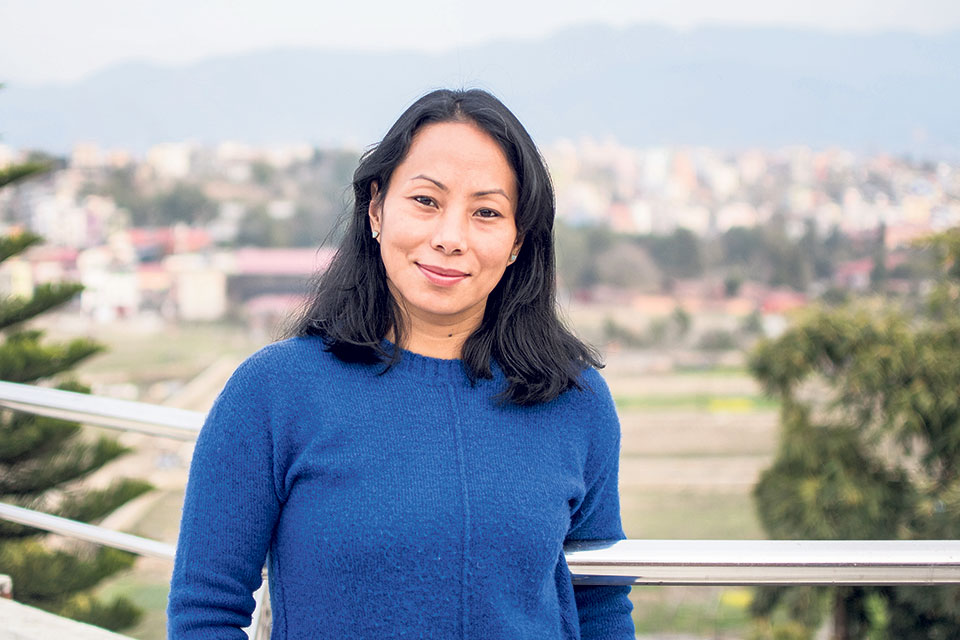

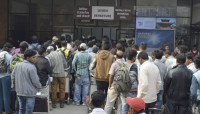
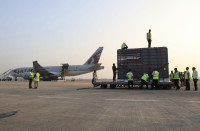
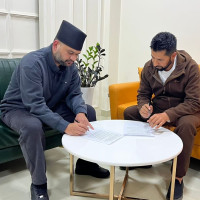
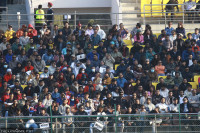
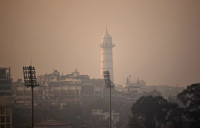



%20(1).jpg&w=300&height=200)

